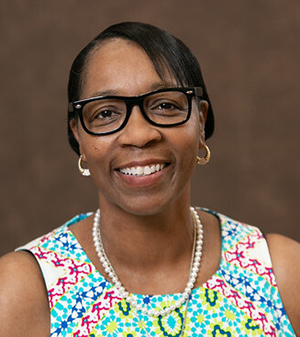As professions of all sorts tread through new challenges presented by the COVID-19 pandemic, school counseling is no exception.
Mercer University’s College of Professional Advancement trains school counselors to be well-versed in catering to the students they will encounter and to effectively meet mental health needs of the 21st century.
Dr. Karen Rowland, chair of the Department of Counseling, believes that passion for helping others should be the forerunner of the drive to do counseling work. Her background in education plays a big role in her views on the counseling profession, and particularly school counseling, which is one of three master’s degree programs offered by the department.

“I have always been passionate about school counseling because teaching is my calling. When I moved to the United States from the Bahamas, I noticed that students seemed to gravitate toward me to talk about their problems,” Dr. Rowland said. “I want to be able to convey my passion to the students and have them say, ‘I’m doing this because this is what I’m supposed to be doing.’”
The coronavirus pandemic has been an especially difficult time for school counselors due to the transition from learning in a brick-and-mortar setting to a virtual platform.
“The major challenge we’re having to face in our counseling programs is how do we prepare them to work during a period of time when the entire world is going through a pandemic,” Dr. Rowland said. “Self-care became paramount for us in terms of checking in with our students. We required them to do what we call a wellness plan to see what they’re doing to take care of themselves. With giving of yourself, you need to find a way of making sure you’re replenishing what you are giving out.”
Dr. Rowland, along with school counseling faculty from nearby institutions Clark Atlanta University, Georgia State University, the University of Georgia and the University of West Georgia, recently led a webinar, titled “School Counselors, Community, and Connection: Fortifying the Future.” Participants included school counselors and interns from Metro Atlanta area school districts, including Atlanta Public Schools, as well as Cobb, Douglas, Fulton, Gwinnett, Hall, Henry, Clayton and Rockdale counties.
“Since we are located in the Metro Atlanta area, we felt like it’s our civic duty and moral responsibility to check in on those universities around us,” Dr. Rowland said. “We were able to do it panel style, where we answered questions based on the needs that the participants had sent in. We had a great turnout and got lots of great feedback.”
Within the College of Professional Advancement, each of the counseling master’s degree programs, which also include clinical rehabilitation and clinical mental health counseling, are intertwined in many ways, while the school counseling program is set apart due to its educational focal point.
“The master’s programs take core classes together then split off into those specialty areas,” Dr. Rowland said. “The entire school counseling program is based on students in a school setting doing well, students succeeding and students’ academic achievement.”
The school counseling program prepares students to become certified professional school counselors in the state to design and deliver comprehensive school counseling programs that are comprehensive in scope, preventive in design and developmental in nature. This focus is on academic, career and social/emotional curriculum that is delivered through individual and small group counseling, guidance and consultation as well as classroom lessons with the goal of promoting academic success for the P-12 student.
The program has been decorated with accomplishments such as presentations of research at various academic conferences, publications in academic journals and through organizations such as the Georgia School Counselor Association, as well as consistent passing rates for counseling licensure and accreditation from the Council for Accreditation of Counseling and Related Educational Programs.
“We not only want our students to have the necessary content knowledge and be able to apply it, we want them to represent Mercer very well,” Dr. Rowland said. “In all of our programs, we not only want to be the best in Georgia or in the U.S., but the best in the world, and we have to make our presence known on that level.”










